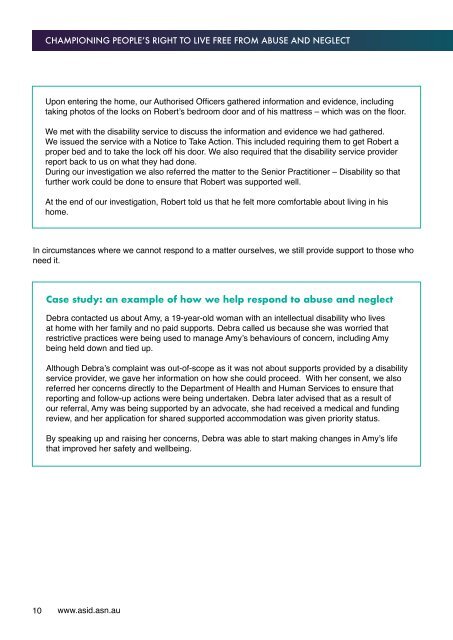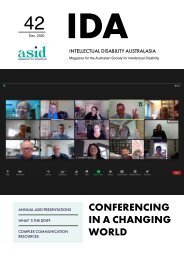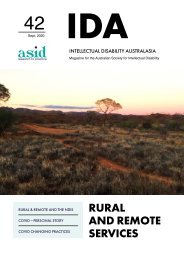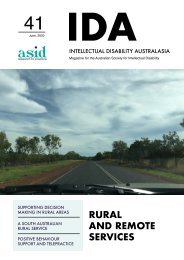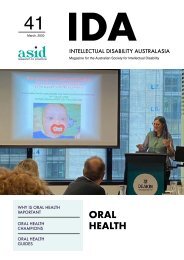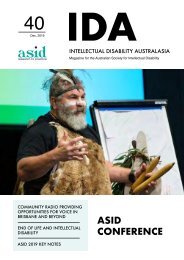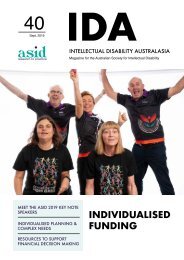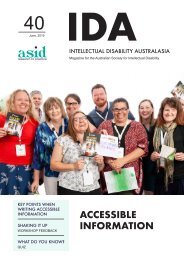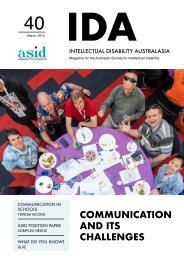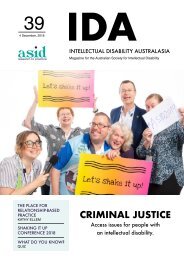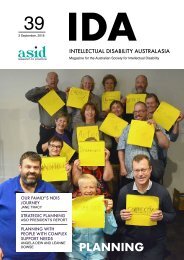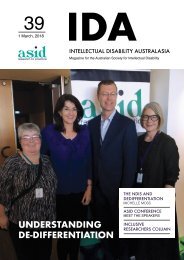Create successful ePaper yourself
Turn your PDF publications into a flip-book with our unique Google optimized e-Paper software.
CHAMPIONING PEOPLE’S RIGHT TO LIVE FREE FROM ABUSE AND NEGLECT<br />
Upon entering the home, our Authorised Officers gathered information and evidence, including<br />
taking photos of the locks on Robert’s bedroom door and of his mattress – which was on the floor.<br />
We met with the disability service to discuss the information and evidence we had gathered.<br />
We issued the service with a Notice to Take Action. This included requiring them to get Robert a<br />
proper bed and to take the lock off his door. We also required that the disability service provider<br />
report back to us on what they had done.<br />
During our investigation we also referred the matter to the Senior Practitioner – Disability so that<br />
further work could be done to ensure that Robert was supported well.<br />
At the end of our investigation, Robert told us that he felt more comfortable about living in his<br />
home.<br />
In circumstances where we cannot respond to a matter ourselves, we still provide support to those who<br />
need it.<br />
Case study: an example of how we help respond to abuse and neglect<br />
Debra contacted us about Amy, a 19-year-old woman with an intellectual disability who lives<br />
at home with her family and no paid supports. Debra called us because she was worried that<br />
restrictive practices were being used to manage Amy’s behaviours of concern, including Amy<br />
being held down and tied up.<br />
Although Debra’s complaint was out-of-scope as it was not about supports provided by a disability<br />
service provider, we gave her information on how she could proceed. With her consent, we also<br />
referred her concerns directly to the Department of Health and Human Services to ensure that<br />
reporting and follow-up actions were being undertaken. Debra later advised that as a result of<br />
our referral, Amy was being supported by an advocate, she had received a medical and funding<br />
review, and her application for shared supported accommodation was given priority status.<br />
By speaking up and raising her concerns, Debra was able to start making changes in Amy’s life<br />
that improved her safety and wellbeing.<br />
10 www.asid.asn.au


